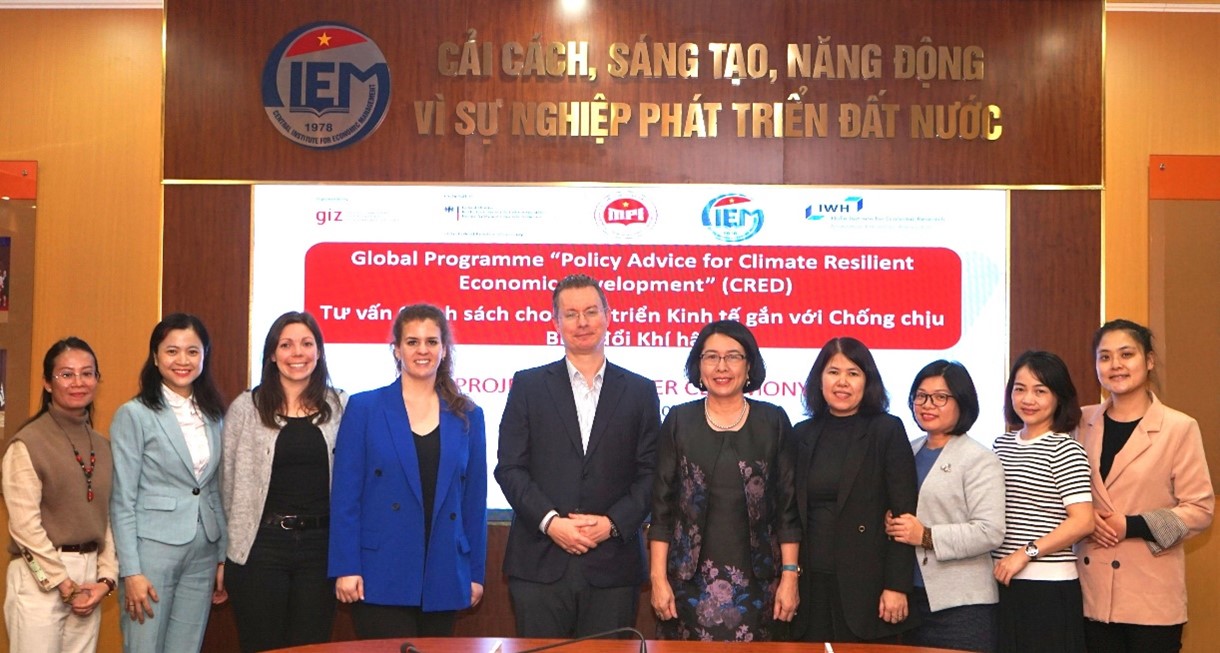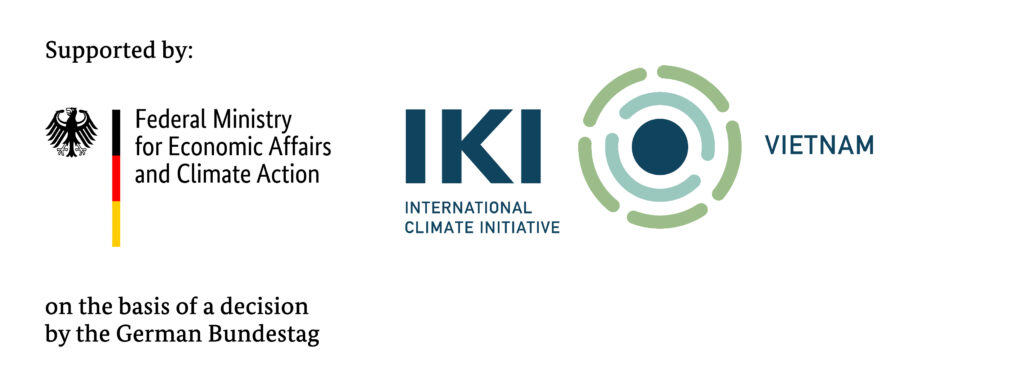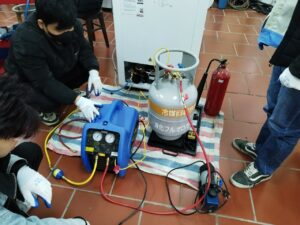“Climate change has impact on the entire economy, and this reality needs to be addressed. Governments are therefore required to assess the economic impact of climate risks and create potential adaptation scenarios. One of effective approaches is to develop macroeconomic models that incorporate climate risks and include them into long-term economic and adaptation planning. Together with economic experts from Germany, we enabled our Vietnamese partner in creating models of this kind and integrate them into instruments to support climate-resilient economic development.”
Why is a macro-economy approach required to tackle climate change in Viet Nam?
Climate change is increasingly impacting on people’s lives, disrupting national economies and local livelihoods alike, and climate adaptation can no longer be confined to individual sectors (e.g. agriculture) but needs to be mainstreamed into economic decision making. Only a macro model that looks into the economy as a whole will allow countries to adequately understand and react to the increasing risks which climate change poses for their future development and social welfare. We need a systematic assessment of climate risks for all economic sectors.
Viet Nam is one of the countries most severely affected by climate change. Therefore, it is a need for methods and tools to assess the economic impact of climate risks and adaptation measures that can reduce these risks. However, Viet Nam’s capacities for the assessment of climate change impacts on economic development are insufficient. Policymakers will need reliable economic models to anticipate climate impacts and prioritize adaptation options.
What does IKI offer in response to the need?
To support Viet Nam in his need for climate-sensitive economic development strategy and action plan, the CRED project worked with the Ministry of Planning and Investment (MPI) and the Central Institute for Economic Management (CIEM). This is part of the global project “Policy Advice for Climate-Resilient Economic Development” (CRED), funded by the Federal Ministry for Environment, Nature Conservation and Nuclear Safety (BMUV) and implemented by GIZ in Viet Nam from 2019 to March 2023.
The project brought Vietnamese and German economic experts together and supported the creation of a model for climate-resilient economic development, jointly developed with the German Halle Institute for Economic Research and CIEM. This model serves as a tool to assess how different economic sectors and their productivity are impacted by future climate change scenarios including extreme weather events and damages caused by slow-onset events (e.g. sea-level rise). A full description of the model for Viet Nam is available at Adapting economic development to climate change (giz.de).
What benefits has Viet Nam reaped from this macroeconomic model?
With the economic and climate data collected using this tool, Viet Nam becomes better able to quantify the economy-wide impacts of adaptation measures. The model can generate quantifiable results, e.g. the climate change may reduce Viet Nam’s annual GDP by 4 percent over 2020-2050 and 5 to 11 percent between 2050 and 2100; or investments in climate-resilient infrastructure and diversified climate-smart crop patterns can collectively reduce the climate change impact on national consumption by 3-5 percent in 2050 and 4-6 percent in 2100. These modelling results can be used to advise relevant ministries in making actionable recommendations for systematic adaptation measures, which in turn contributes to the implementation of Nationally Determined Contributions (NDCs) goals and National Adaptation Plans (NAPs).
The ownership of the CRED model was officially transferred to CIEM in March 2023. The model was initially adopted to cover 17 sectors and 6 regions, and can be adjusted further in the future to better link climate policy with economic development planning.
“We believe that the data collected using the CRED model, will be used in the policy making processes associated with climate change, and the monitoring and evaluation of Viet Nam’s green growth. The model also has a role to play in the 2023-2024 regional planning process that the Ministry of Planning and Investment is assigned to lead and our Institute is tasked to contribute to,” Dr. Tran Thi Hong Minh, CIEM Director, remarked at the CRED project hand-over ceremony

Watch this video to learn more about the links between macroeconomics and climate change mitigation and adaption: Managing Climate Risks and Adaptation with Macroeconomic Models – YouTube
Contact: Dennis Quennet, Programme Director Sustainable Economic Development, dennis.quennet@giz.de





